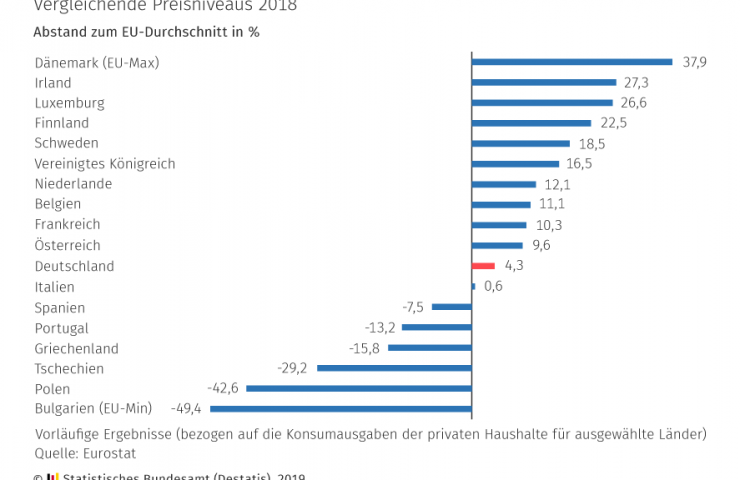The cost of living in Germany remains higher than the average for the European Union. According to statistics, prices for consumer goods and services in Germany in 2018 were 4.3 percent higher than the average in the 28 EU member states.
At the same time, in most countries bordering Germany, the price level is much higher. The neighboring countries of Germany, only in Poland and the Czech Republic, have slightly lower costs for food, housing and utilities.
Denmark remains the most expensive EU country for life - the price level in this country last year was 37.9 percent higher than the EU average. It is followed by Ireland (27.3 percent), Luxembourg (26.6), Finland (22.5) and Sweden (18.5). Bulgaria remains the most accessible country, where residents pay for goods and services about half the EU average.
Among European countries outside the EU, the highest price levels were in Iceland (56.1 percent higher than the EU average), Switzerland (51.9) and Norway (47.7). The agency separately notes that the price level in Turkey was 56.6 percent lower than the EU average, due to a sharp drop in the Turkish lira against the euro. These results are based on Eurostat data using purchasing power parity based on comparative prices.





